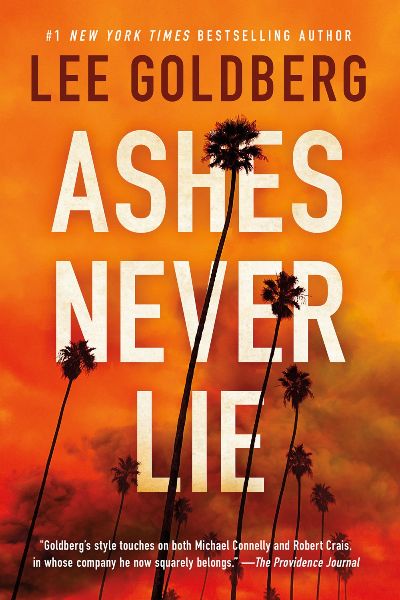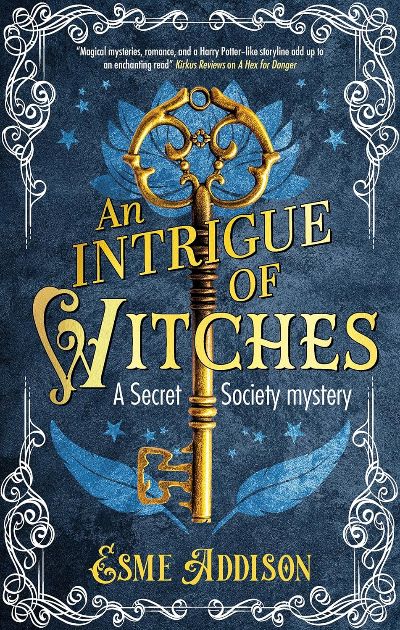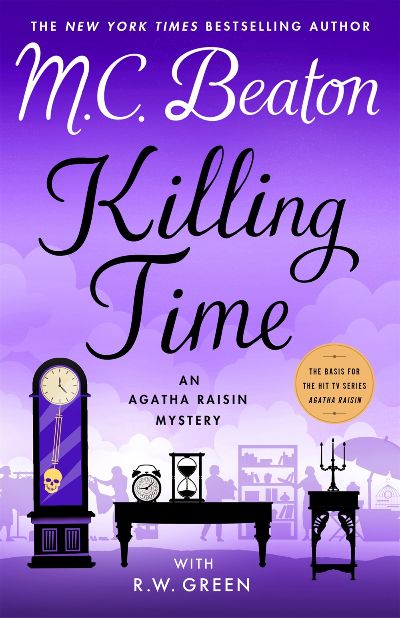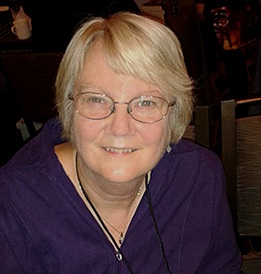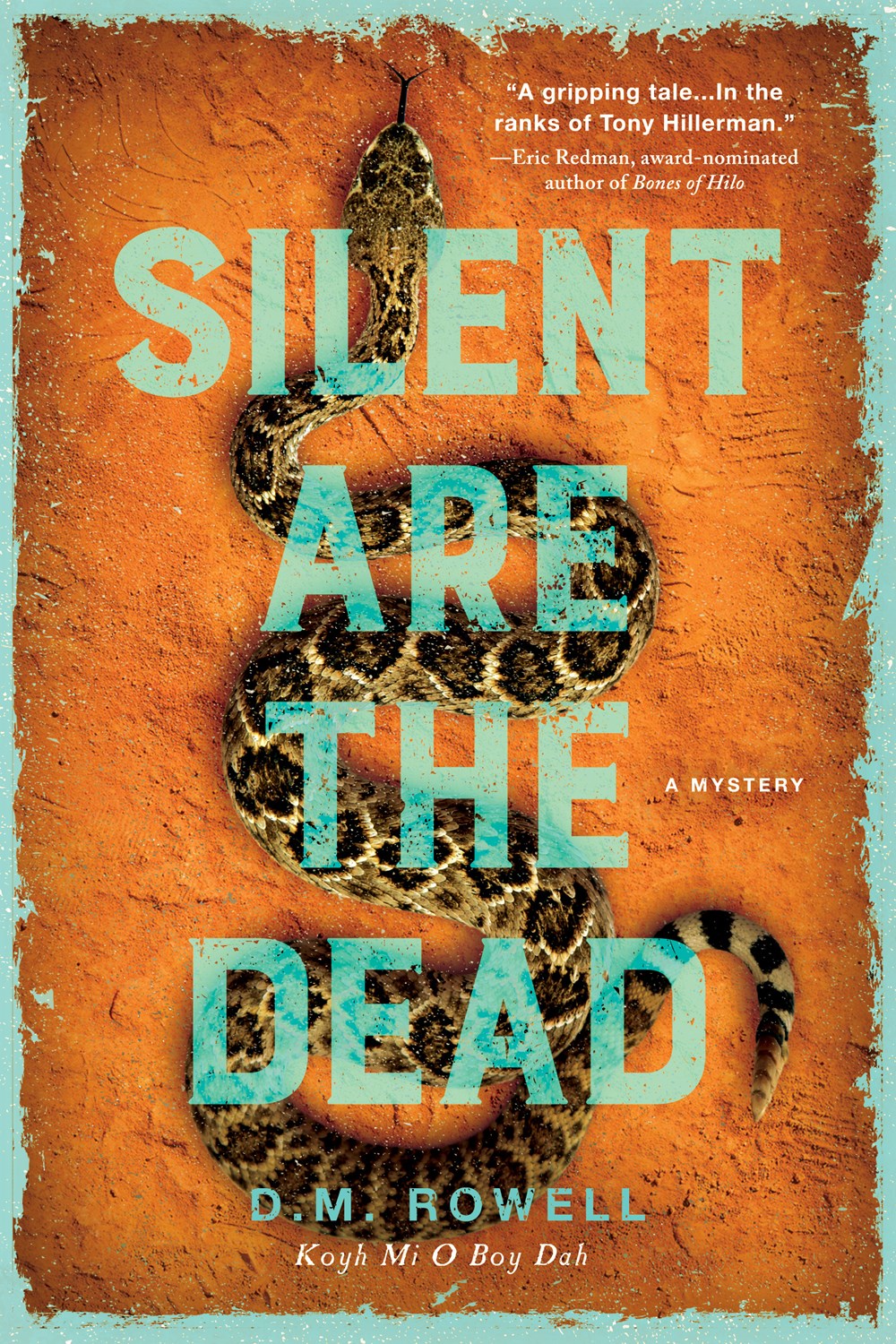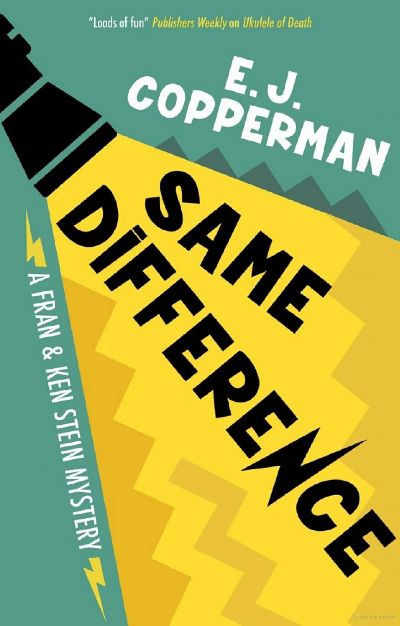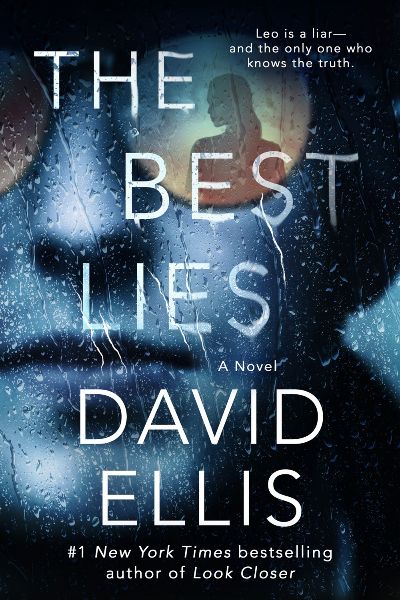Cordelia Black’s successful, not-always-above-board career in pharmaceutical sales enables some of her passions in life: buying super-expensive designer clothes and drugging bad men so that she can get them to her secret killing room. That terrifying shadow world is never meant to be revealed to those Cordelia loves most: her best friend, Diane, and Diane’s daughter, snarky but loveable pre-teen Samantha (don’t call her Sammy). But Cordelia and Diane’s funny/tragic dating lives mean that her worlds collide, after which everything–everything–goes wrong in a Murphy’s Law-meets-murder nailbiter. It’s all too believable, making this gripping debut one that you’ll tear through. If you’re thinking of Dexter, you’re right–it does have parallels to that great show, though it has a much better ending and more side characters to root for. Another plus: it’s set in Baton Rouge, less often a setting than big sister NOLA. Get this on your TBR pile!
Review
What’s better than a gripping story that also teaches you a ton about a fascinating subject? That’s just what readers will get in Goldberg’s follow-up to Malibu Burning (2023). This time, odd-couple Los Angeles arson investigators Walter Sharpe and Andrew Walker are faced with several perplexing crimes. The central case involves a series of just-built, as-yet-uninhabited homes for the wealthy that combust in a far more explosive way than an empty house. Then there’s the man who’s found dead in a fire, but the fire didn’t kill him. Fraud pokes its head up too, with all keeping Sharpe—a genius with fire investigation, but socially not so much—and his still-learning partner busy with intriguing theories based on detailed descriptions of the workings of fire, accelerants, and more. The characterization here is wonderfully enjoyable, with the partners and their various associates bantering in ways that’s sometimes hilarious and always reveals the human behind the shield. Goldberg’s author’s note helpfully details the books about fire dynamics and investigation that he used for research, and readers may want to try these as well, notably Fireraisers, Freaks, and Fiends, “Torchered” Minds by former LA County arson and explosives detective Ed Nordskog, who also answered questions for the book.
Addison, author of the Enchanted Bay series, brings her lively voice to a series debut featuring a heroine to remember. Historian Sidney Taylor, a young Black woman, is on furlough from the Smithsonian when she gets a mysterious offer to go on a quest in her hometown, Robbinsville, VA, the heart of which is the Josiah Willoughby museum. Sidney’s parents are rich—her father is the Speaker of the House of Representatives—but they believe in the young woman making her own way, so when she receives a wax-sealed envelope with an invitation inside to find something historically significant in Robbinsville, and the prize is a million dollars, she’s in. There’s danger and intrigue in store though, with Sidney receiving threatening messages and increasing pressure on the museum to give in to virtual reality as the future, a government program that seems more sinister by the minute, headed as it is by a woman who will remind readers of scary real-life tech-exec Elizabeth Holmes. The small-town scene, loving family members, and history-tinged puzzles keep the pages turning fast; there are plenty of real historical details packed in, too, surrounding a long-running conspiracy about the U.S. presidents. A winning series starter.
Silly me. I’ve long held a bias against novels written from the grave (sorry V. C. Andrews!), where the author has died and someone else has taken up the series. Can these books really be any good? Well I’m happy to report that the forthcoming Agatha Raisin novel, Killing Time, written “with R. W. Green,” is a whole load of fun. Beaton was astoundingly prolific, writing multiple series under a handful of names. She died in 2019, the same year she published the 30th Agatha Raisin book (the series, now written by R. W. Green, is up to 35). With several plots in action—Agatha’s detective agency is pursuing shop burglars, an antiques dealer/neighbor is murdered, Agatha creates a promotional day to launch a new wine, a love affair takes her to Mallorca—fans get to meet again all their favorite characters from Raisin-world in action, from Mrs. Bloxby, the vicar’s wife, to several of Agatha’s paramours. But at the heart is Agatha herself, as curmudgeonly and cantankerous, tough and tender as ever. Agatha, it’s great to have you back.
Any cozy reader will assure you that there are few places more dangerous than the community garden. And Maggie Walker—who helped create the garden in Marlowe, her small Berkshire town—is reminded of this fact when opening day arrives and she discovers a boot jutting out of the garden. Attached to a foot. Which is attached to a body. Yikes! To make matters worse, Violet, whose idea the garden was, has seemingly disappeared. Maggie has only recently returned to Marlowe, smarting after the death of her “not-quite ex-husband,” and taking over the home of her recently deceased grandmother. But one thing keeps happening after another, from threatening telephone calls to harassment from a cousin as Maggie tries to find out what happened to Violet. An engaging look at small town life and death, this book was the recipient of the Minotaur Books/Mystery Writers of American First Crime Novel Award.
A missing nine-year-old boy has Deputy Mattie Wray bring her K-9 partner, Robo, into uncharted territory to initiate a search and rescue for him in Mizushima’s latest terrific series. By leaving Colorado and heading to the Olympic Mountains of Washington State, Mattie risks Robo’s job and delaying her wedding. From the start, the information she and the team of searchers receive is a bit sketchy. When one of the other searcher dogs gets ill, it becomes clear that someone doesn’t want the team to find this boy. Since the missing kid is the son of a celebrity, and the longer he’s out in the wilderness, the louder the clock is ticking to still find him alive and keep away the paparazzi. Mizushima’s series engages on every level: the authenticity of the search scenes; the setting, in which the reader can feel the moss and dampness of the region; and the insight into the operation of coordinated efforts to find missing people. Gathering Mist is the perfect place to start if you are unfamiliar with her previous novels, and Robo is the most incredible dog ever. Who’s a good boy?
Mary Higgins Clark Award-finalist Rowell’s second mystery featuring Kiowa professional storyteller Mae “Mud” Sawpole opens in media res as she attends a cleansing and blessing ceremony at the Kiowa Tribe Museum in Carnegie, Oklahoma. As recounted in Never Name the Dead, Mud and her cousin Denny thwarted the attempted theft of the precious Jefferson Peace Medal given to the Tribe during the Lewis and Clark Expedition of 1804. Earlier in the day, they had also found a body and identified the killer. Now, it is time to return the medal to the museum and for Mud to go back to Silicon Valley, where her PR client has an important event. First, she needs to confront tribe chairman, Wyatt Walker, and tribe legislator Anna ManyHorse about the illegal fracking on her grandfather’s land but when the dealer involved in the theft of the Jefferson Peace medal and other Kiowa artifacts is murdered and a respected tribal elder falls suspect, Mud and Denny must race against the clock on the longest night of their lives (Mud has a noon flight to catch the next day!) to find the real culprits behind the fracking and the dealer’s killing. As a gay woman of mixed race, Mud has always felt a bit of an outsider (“a large minority in the Tribe didn’t think I was Kiowa enough…because I didn’t look Indian enough”), but her great-aunt’s wisdom and a ceremonial sweat bath set her on the path to finding the truth. Rowell, whose Kiowa name, “Koyh Mi O Boy Dah”, means “She Is A Traditional Kiowa Woman”, provides enough backstory for newbies to slip easily into the storyline. Her details about Kiowa history, culture, and spiritual traditions are respectful and fascinating. She also knows how to write an intense fight scene complete with menacing rattlesnakes. Tony Hillerman fans will enjoy discovering a promising mystery writer and her intriguing protagonist.
The village of Teetarpur, on the outskirts of Delhi, has been known for nothing for decades. Grittiness yes, but no crimes, no scandals. Until the unthinkable happens and an eight-year-old girl, Munia, is murdered, discovered hanging from the branch of a tree. Munia may have been shy, but she was much loved by her father, the widowed Chand, and the rest of her community. Part police procedural, part literary thriller, this beautifully written narrative brings rural India to life. The novel is told in the third person, with vivid characters richly developed and time that moves back and forth as we see Chand in his youth, living by the Yamuna, the black river of the book’s title. We follow local inspector Ombir Singh, under pressure from the rich and the political elite to resolve the killing, and Chand, calm on the exterior, but whose blood boils with revenge, not trusting the police. Roy is a journalist, and it’s tempting to attribute that to what makes this book so magnificently successful: the range of society, the moral complexity of many of the characters, and the terrifying brutality. Sure to be one of the best books of the year.
It’s tempting with some books to say “just read it,” and the second in Copperman’s Fran and Ken Stein (get it?) series is that type of book: quite unbelievable but totally seductive. Twins Fran and Ken were created by two scientists who played around with the twins’ genetics; they’re super tall, super strong, and a bit superhero-like. Their parents had to skip town when the two were babies, leaving them in the hands of a trusted friend. Today, the twins are all grown up and run their own Manhattan detective agency; in this episode, they are hired to track down a young trans woman, Eliza, who has disappeared, and who very much may not want to be found. The search for Eliza takes the duo through most of the City’s boroughs, entangles them in a handful of characters, and presents a plot that keeps growing more and more complex. But it’s the personal lives of the siblings that interest me the most, such as Fran’s on-again, off-again relationship with an NYPD detective and the rare communication she has with their parents. Will they ever be reunited?
Leo Balanoff’s skills as an attorney are assisted by his tendency to pathologically lie every chance he can. His unscrupulous methods caused the love of his life to walk away, and his horrific family background has him seeking revenge. When the target of his retribution is killed, and Leo’s DNA is found at the scene, he finds himself on the verge of losing everything. So when an FBI agent offers a chance to go undercover to avoid prison, the attorney jumps at the opportunity, not realizing it will put him in the crosshairs of his ex. Twist after shocking twist comes nonstop in this engaging and fun thriller. The story is not just like a twisty pretzel, it’s like an entire pretzel factory. Ellis has written one of those rare books in which every single word cannot be trusted, resulting in an ending that no reader will see coming. Paranoia, chaos, and shocks await.


